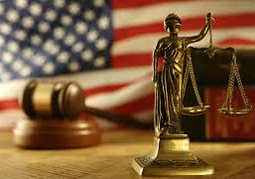
[Forum Discussion:] We have a couple dozen intersections where wrecks happen about every 10 days. I can set a price based on the seriousness of the wreck and how much the person not at fault may be able to gain in a suit. Say as an example. The other day at one of these intersections a dump truck is thought to have run a red light and hit a car in which a mother and two kids were all injured. The dump truck was loaded and was trying to make a yellow light. The family injured would stand to gain a lot of money in a suit in this instance.
If I had a video of the wreck and how it happened then I could show them the video so they have a chance to see that it clearly shows they were not at fault as the dump truck driver is saying they were. I could offer them the video for $5000 and once they pay they have it to provide to their lawyer.
My main question is: What are they legal issues on my having a video that I am with holding for a monetary price?
Can I be compelled to provide the video by their lawyer?
Can I maintain some right to with hold the video until payment?
I am looking at it as, I made the video so if you want it you must pay me. Or, I am providing a service similar to redlight cameras but I am charging for the video.
So I need to know what others think. I personally do not like the idea but if the chips are down and I need to have a way to generate an income then I am willing to do this.
And I think if I do it legally and declare the income then I am doing a legal way to make an income.
[Response]
Videoing for Profit. Don’t forget that you will have to appear in court as a witness to authenticate the video, when it was taken, how it was taken, even maybe have to be qualified as an expert witness in videography.
Don’t forget the errors and omissions insurance your new business will need.
It’s one thing to be a perchance bystander and another to be operating a business.
Authenticating pictures and videos is actually pretty easy, and rarely involves the need for the actual photographer or videographer to appear in court.
In some cases there is no person behind the camera – surveillance footage, for example, is frequently used in court.
All that is required if for somebody to attest that the video accurately reflects what it depicts.
Source: expertlaw.com
